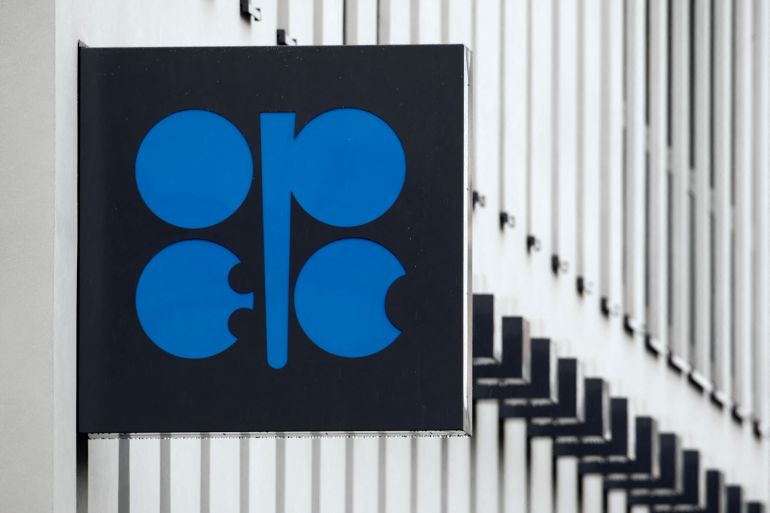OPEC barely increased output last month amid chronic struggles
Oil prices soared to a seven-year high above $90 a barrel last month, stirring expectations of a return to triple digits.

OPEC nations barely increased production last month amid chronic struggles among members and renewed unrest in Libya, again illustrating the group’s inability to calm a booming market.
The Organization of Petroleum Exporting Countries and its partners are expected to rubber-stamp the revival of more halted supplies when they gather online on Wednesday. But a Bloomberg survey showed they struggled severely in December, in part due to depressed investment.
Keep reading
list of 4 itemsFewer US workers are telling their bosses ‘I quit’
Texas electricity prices spike with cold front set to test grid
Stocks get wobbly start to new month after volatile January
Oil prices soared to a seven-year high above $90 a barrel last month, stirring expectations of a return to triple-digits, as supplies from OPEC+ and elsewhere failed to keep up with the vigorous recovery in demand from the pandemic. The rally is fanning the wave of inflation that’s frustrating central banks and inflicting a cost-of-living crisis on millions.
OPEC’s 13 members increased production by only 50,000 barrels a day in December as slight gains across the group were wiped out by a 140,000 barrel-a-day decline in Libya, according to the survey. They pumped 28.14 million barrels a day in total. The North African nation was stricken with a blockade of its western fields by militias, forcing the closure of its biggest reservoir, Sharara.
The 10 OPEC nations participating in an accord with non-members such as Russia increased by 160,000 barrels a day, about two-thirds of the targeted amount.
The full 23-country OPEC+ coalition is expected to green-light the return of 400,000 barrels a day for March, though that too is beset by technical difficulties. Its compliance with cutbacks was 122% in December, according to data presented to an internal committee on Tuesday.
Widespread difficulties in restoring supplies increasingly place the burden on the group’s Gulf nations: Saudi Arabia, the United Arab Emirates, Iraq and Kuwait. But this in turn is leaving traders anxious over the spare capacity they hold to cover any disruptions, whether deeper losses in Libya or another attack like last month’s drone strike in Abu Dhabi.
The figures are based on ship-tracking data, information from officials and estimates from consultants including Rystad Energy AS and JBC Energy GmbH.